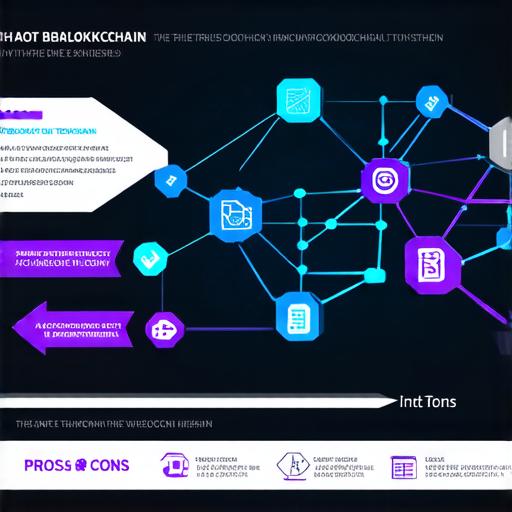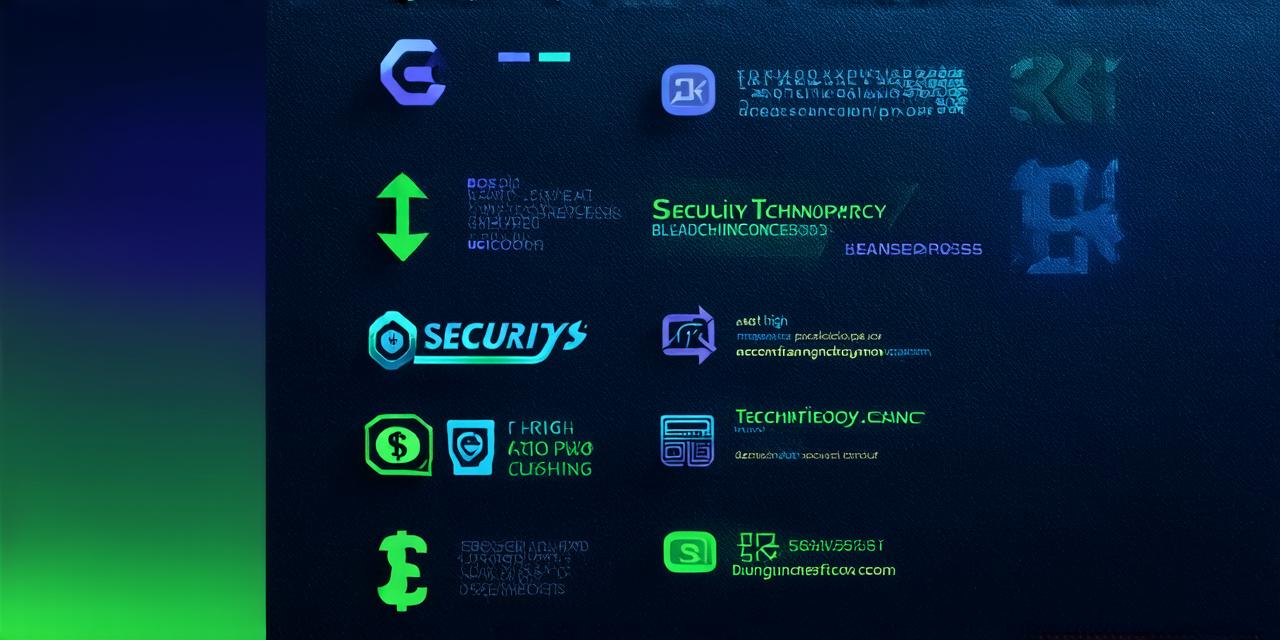What are the pros and cons of blockchain technology
Blockchain technology has been gaining immense popularity in recent years due to its decentralized nature and immutable ledger. This distributed database system allows for secure, transparent, and efficient transactions without the need for intermediaries. While blockchain technology presents numerous benefits, it also has its drawbacks. In this article, we will explore the pros and cons of blockchain technology and their implications for developers.
Pros of Blockchain Technology
Decentralization
One of the main advantages of blockchain technology is its decentralized nature. Unlike traditional centralized systems, blockchain networks operate on a peer-to-peer network where each participant has an equal say in the network’s operations. This eliminates the need for intermediaries such as banks or other financial institutions, which reduces transaction costs and increases efficiency.
Security
Blockchain technology uses cryptography to secure transactions and data. Each transaction is verified by a network of nodes that work together to ensure the integrity of the ledger. The use of cryptographic algorithms ensures that once data is recorded on the blockchain, it cannot be altered or deleted. This makes blockchain technology highly resistant to hacking and fraud.
Transparency

Blockchain technology allows for complete transparency in transactions. All participants in the network have access to a shared ledger that records every transaction made on the network. This enables users to track the movement of assets and verify the authenticity of transactions.
Immutability
Blockchain technology ensures the immutability of data stored on the network. Once data is recorded on the blockchain, it cannot be altered or deleted. This makes it an ideal solution for applications that require a permanent and unalterable record of transactions, such as voting systems or supply chain management.
Smart Contracts
Smart contracts are self-executing programs that run on the blockchain. They can automate complex processes and eliminate the need for intermediaries, which reduces transaction costs and increases efficiency. Smart contracts can be used in various applications such as financial services, healthcare, and supply chain management.
Cons of Blockchain Technology
Scalability
One of the main drawbacks of blockchain technology is its limited scalability. The current blockchain network can only handle a limited number of transactions per second. As the demand for blockchain technology increases, it may become difficult to scale the network to accommodate the growing number of users.
Energy Consumption
Blockchain technology requires a significant amount of computational power, which consumes a lot of energy. This has raised concerns about the environmental impact of blockchain technology and its sustainability.
Regulatory Risks
The decentralized nature of blockchain technology presents regulatory risks. It is difficult for governments to regulate and enforce compliance with existing laws and regulations on a global scale. This may lead to legal uncertainty and increased risk for businesses operating in the blockchain space.
Cost
Blockchain technology can be expensive to implement, especially for small businesses or individuals. The cost of setting up and maintaining a blockchain network can be prohibitive for some users.
Complexity
Blockchain technology is complex and requires specialized knowledge and skills to develop and deploy. This may make it difficult for non-technical users to understand and use the technology effectively.
Case Studies and Personal Experiences
Bitcoin
Bitcoin, the first decentralized cryptocurrency, is perhaps the most well-known example of blockchain technology. It was created in 2009 by an anonymous individual or group known as Satoshi Nakamoto. Since then, it has become a popular alternative to traditional currencies and has been adopted by various businesses and individuals around the world. However,
Bitcoin
‘s scalability issues have led to slow transaction times and high fees.
Ethereum
Ethereum is a blockchain platform that enables developers to build decentralized applications (dApps) on top of the network. It was created in 2015 by Vitalik Buterin.
Ethereum
‘s smart contract functionality has made it a popular choice for businesses looking to automate complex processes and reduce transaction costs. However,
Ethereum
also faces scalability issues and high gas fees.
Walmart
Walmart, the world’s largest retailer, is using blockchain technology to improve supply chain management. It has partnered with IBM to develop a blockchain-based platform that tracks products from the point of origin to the end consumer. This has improved product traceability and reduced waste by enabling
Walmart
to quickly identify and remove contaminated products from shelves.
Research and Experiments
Blockchain-Based Voting System
Blockchain technology has been explored as a solution for voting systems due to its decentralized nature and immutability. A blockchain-based voting system would eliminate the need for intermediaries such as election authorities and ensure the integrity of the voting process. However, there are concerns about the security and scalability of a blockchain-based voting system.
Blockchain-Based Healthcare System
Blockchain technology has been explored as a solution for healthcare systems due to its decentralized nature and immutability. A blockchain-based healthcare system would enable secure sharing of patient data and improve medical record keeping. However, there are concerns about the scalability and interoperability of a blockchain-based healthcare system.
FAQs
What is Blockchain Technology?
Blockchain technology is a distributed database system that allows for secure, transparent, and efficient transactions without the need for intermediaries. It uses cryptography to secure transactions and data and maintains an immutable ledger of all transactions made on the network.
What are the
Pros of Blockchain Technology
?
The pros of blockchain technology include decentralization, security, transparency, immutability, and smart contracts. These features make blockchain technology ideal for applications that require a permanent and unalterable record of transactions, such as voting systems or supply chain management.
What are the
Cons of Blockchain Technology
?
The cons of blockchain technology include scalability issues, energy consumption, regulatory risks, cost, and complexity. These factors may make it difficult for businesses to implement and use blockchain technology effectively.
How can Blockchain Technology be Used in Business?
Blockchain technology can be used in various business applications such as financial services, healthcare, and supply chain management. Smart contracts can automate complex processes and eliminate the need for intermediaries, which reduces transaction costs and increases efficiency.
What are the Future Implications of Blockchain Technology?
The future implications of blockchain technology are still uncertain. However, it is likely that we will see more widespread adoption of blockchain technology in various industries as businesses look to improve efficiency and reduce costs. The regulatory landscape for blockchain technology may also evolve as governments seek to regulate and enforce compliance with existing laws and regulations on a global scale.



